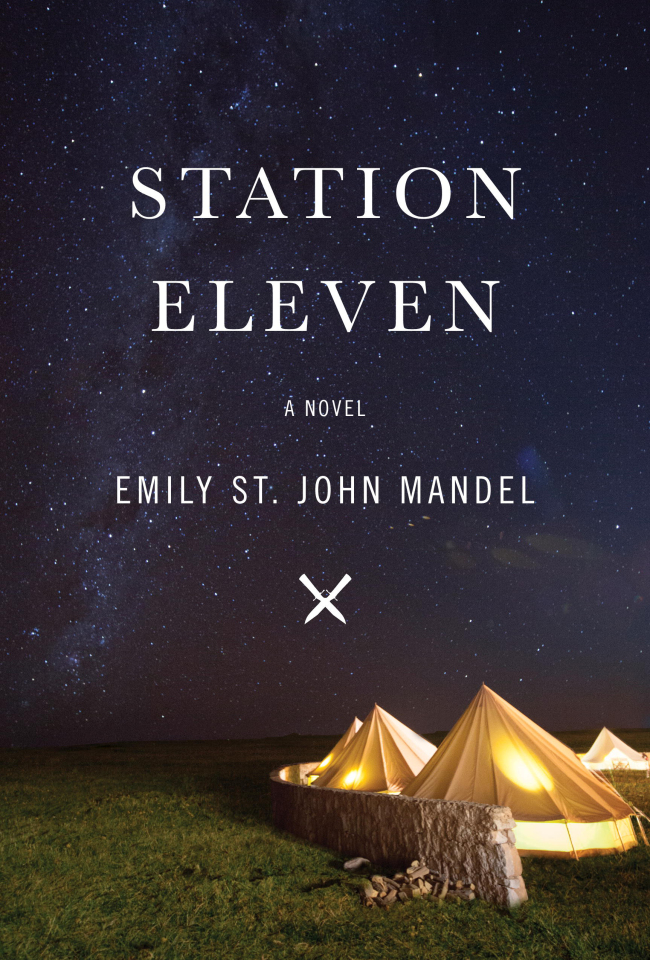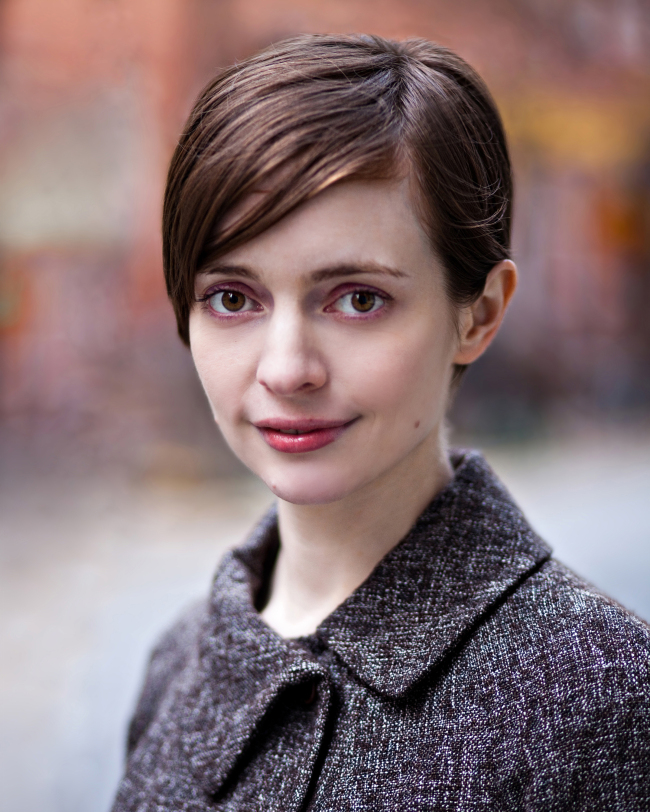AUSTIN ― Not long ago, Emily St. John Mandel was known as the author of three well-regarded literary noir novels that not a lot of people read. Call them “critically acclaimed, but terrible-selling,” she says.
Then came “Station Eleven.”
Publishers fought over the manuscript. The book debuted in September to enthusiastic reviews and cracked The New York Times best-sellers list. It’s being translated into 13 languages. And Wednesday, it’s up for a National Book Award.
Her book is set in a world turned upside-down by great upheaval. Is this something she can relate to?
“Absolutely,” she says with a laugh. “It’s been an extraordinary time.”
Mandel sat down for an interview last month before the Texas Book Festival, near the end of a six-week international book tour. She was coming from a public radio interview and headed to talk to another reporter by phone. Why does she think this book is drawing so much attention?
Then came “Station Eleven.”
Publishers fought over the manuscript. The book debuted in September to enthusiastic reviews and cracked The New York Times best-sellers list. It’s being translated into 13 languages. And Wednesday, it’s up for a National Book Award.
Her book is set in a world turned upside-down by great upheaval. Is this something she can relate to?
“Absolutely,” she says with a laugh. “It’s been an extraordinary time.”
Mandel sat down for an interview last month before the Texas Book Festival, near the end of a six-week international book tour. She was coming from a public radio interview and headed to talk to another reporter by phone. Why does she think this book is drawing so much attention?

“I think there is maybe a certain appetite for books that hopefully don’t sacrifice either literary quality or plot,” she says. “I have a book that has both. Which is what I aspired to as a writer. My idea of a perfect novel is Donna Tartt’s ‘The Secret History.’ Which is as literary as anything out there but also a page-turner.”
The editor of her first three novels, Greg Michalson, copublisher of Unbridled Books, is not surprised at her success.
“She was just building a critical mass of people who knew about her work and liked her work and were beginning to look forward to her next book,” he says. “And then this one came out, and it really delivered on everything that people like about fiction.”
“Station Eleven” also had the marketing muscle of a giant publishing house, Knopf, behind it. It arrived at the crest of a wave of titles set in dystopian futures, although labeling it as postapocalyptic oversimplifies things.
“My elevator pitch is that it’s about a traveling Shakespearean theater company in a postapocalyptic America,” she says. “But then if I have more than 30 seconds to give my pitch, I talk about how it’s also about the impact of art in our lives. And the impact of fame. And friendship. Our obsession with objects, celebrity.”

It’s a relatively friendly place, as collapsed civilizations go. She intentionally chose to not focus on violence and chaos.
Instead, she is fond of describing her book as “a love letter to the modern world.” The way electricity flows at the flip of a switch, the way clean water arrives at the twist of a handle, the way airplanes soar. “It occurred to me that one way to consider this was to write about its absence. That was my main impetus for making it postapocalyptic.”
She’s often asked about the overall interest in such themes.
“The easiest explanation is that our appetite for postapocalyptic fiction is our natural reflection of our fears and anxieties in an age of climate change. We feel as though our world is ending and we’re close to the precipice, and it’s a way of channeling our anxieties.”
Although, she asks, “When has it ever felt that the world wasn’t ending?” She recalls a recent conversation with her mother, “where she talked about how guilty she and her friends felt bringing children into the world in the late 1970s. In Canada. So you look back, and that doesn’t seem like it would have been a terrifying moment in history. ... But it’s as if we always believe that the world is ending.”
Themes of alienation and loss run through the parts of the book that take place in the contemporary world as well. Some of that was drawn from Mandel’s life. Like some of her key characters, she grew up on an island off the coast of British Columbia and eventually made her way to big cities. In Toronto, she studied dance ― which may inform the parts of the book that deal with tensions among a group of performing artists ― before focusing on writing, and now lives in Brooklyn with her husband.
“I’d been wanting to write about the disorientation of finding yourself in a different world from the one you grew up in. You could say that’s the experience of anybody who lives a life that would have been unfathomable to them in childhood ... which is definitely my situation. Probably the situation of a lot of people who immigrate to this country.
“But then it’s also probably the situation of most of us. I think about a friend of mine who had just had a baby a few years ago, and I went over to their house to see them. And they’d had to give the dog to relatives for a few weeks because they had this newborn and it was just too much. And they said, ‘Can you believe we have a baby and no dog?’ It was just this thing like, ‘Who are we?’ And so I think here is a certain sense of disorientation that comes over a lot of us in adulthood.”
For all the change, Mandel, 35, seems to be staying the course. She’s pondering her next book and has not even given up her day job as a part-time administrative assistant at a cancer research lab.
“I’ve been able to write two novels at that job,” she says. “So my instinct is to hold onto it.”
By Michael Merschel
(The Dallas Morning News)
(Tribune Content Agency)
-
Articles by Korea Herald








![[Graphic News] More Koreans say they plan long-distance trips this year](http://res.heraldm.com/phpwas/restmb_idxmake.php?idx=644&simg=/content/image/2024/04/17/20240417050828_0.gif&u=)
![[KH Explains] Hyundai's full hybrid edge to pay off amid slow transition to pure EVs](http://res.heraldm.com/phpwas/restmb_idxmake.php?idx=644&simg=/content/image/2024/04/18/20240418050645_0.jpg&u=20240419100350)






![[From the Scene] Monks, Buddhists hail return of remains of Buddhas](http://res.heraldm.com/phpwas/restmb_idxmake.php?idx=652&simg=/content/image/2024/04/19/20240419050617_0.jpg&u=20240419175937)

![[KH Explains] Hyundai's full hybrid edge to pay off amid slow transition to pure EVs](http://res.heraldm.com/phpwas/restmb_idxmake.php?idx=652&simg=/content/image/2024/04/18/20240418050645_0.jpg&u=20240419100350)

![[Today’s K-pop] Illit drops debut single remix](http://res.heraldm.com/phpwas/restmb_idxmake.php?idx=642&simg=/content/image/2024/04/19/20240419050612_0.jpg&u=)